“The surest way to keep a people down is to educate the men and neglect the
women. If you educate a man you simply educate an individual, but if you
educate a woman you educate a family.”
— Dr. J. E. Kwegyir Aggrey, a visionary Ghanianeducator (1875–1927
Knowledge and education are the birthright of every girl child born in Bangladesh. But sadly, due to the highly patriarchal nature of our society, most of the women in the country are devoid of this right. As we are now beginning to understand, society cannot function without the active contribution of women but in the majority of the rural (in some cases, even urban) parts of Bangladesh, Bangladeshi women are still considered to be incapable of making independent decisions.
In order to collectively evolve as a society, women need to be empowered. However, women’s empowerment is highly dependent upon various factors such as geographical location (rural/urban), educational status, social status etc. Policies on women empowerment currently exist at both national and local levels in various sectors, including education, economic opportunities, healthcare and political participation but there are substantial gaps between the formulation and implementation of said policies at the community level.
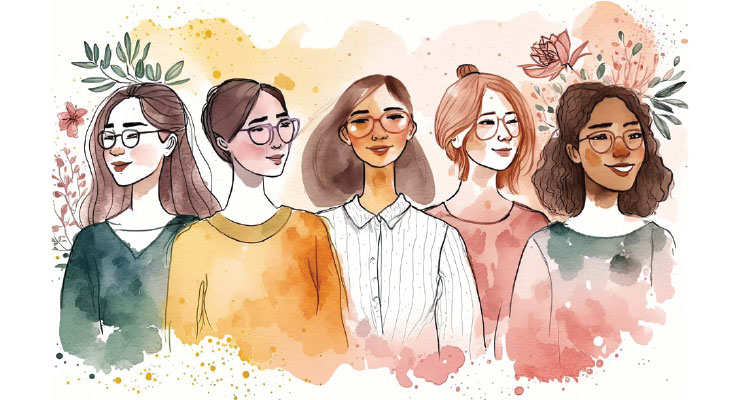
Education is the master key to unlock the door to women empowerment at the grass root level. We all know that when women are empowered to lead full and productive lives, children and families rosper. Education is a milestone of women empowerment because it enables them to respond to challenges, to confront their traditional role and change their life. Education not only educates a woman but enables her to make decisions and accept responsibilities at home and in the outside world. Creating paths toward education is one of the most valuable social and economic investments a developing nation can make. An educated female population correlates with lower child and mother mortality rates, and more education for children of both genders has been linked to less war and decreased poverty.
While we can’t always support the education sector of an entire nation, we can make huge impacts on the lives of individuals and communities. And those impacts add up, a promise of a better life that builds from person to person and begins to catch like wildfire.
Women’s empowerment is the process in which women elaborate and recreate what it is that they can be, do, and accomplish in a circumstance that they previously were denied. Empowerment can e defined in many ways, however, when talking about women’s empowerment, empowerment means accepting and allowing people (women) who are on the outside of the decision-making process nto it. “This puts a strong emphasis on participation in political structures and formal decision-making and, in the economic sphere, on the ability to obtain an incomethat enables participation in economic decision- making.” Empowerment is the process that creates power in individuals over their own lives, society, and in their communities. People are empowered when they are able to access the opportunities available to them without limitations and restrictions such as in education, profession and lifestyle. Feeling entitled to make your own decisions creates a sense of empowerment. Empowerment includes the action of raising the status of women through education, raising awareness, literacy, and training. Women’s empowerment is all about equipping and allowing women to make life-determining decisions through the different problems in society. Alternatively, it is the process for women to redefine gender roles that allow for them to acquire the ability to choose between known alternatives who have otherwise been restricted from such an ability. There are several principles defining women’s empowerment such as, for one to be empowered, they must come from a position of disempowerment.
Furthermore, one must acquire empowerment themselves rather than have it given to them by an external party. Other studies have found that empowerment definitions entail people having the capability to make important decisions in their lives while also being able to act on them. Lastly, empowerment and disempowerment are relative to each other at a previous time; therefore, empowerment is a process, not a product. Women’s empowerment has become a significant topic of discussion in development and economics. It can also point to the approaches regarding other trivialized genders in a particular political or social context.
Women’s refers to the ability for women to enjoy their right to control and benefit from the resources, assets, income, and their own time, as well as the ability to manage risks and improve their economic status and well-being. While often interchangeably used, the more comprehensive concept of gender empowerment refers to people of any gender, stressing the distinctions between biological and gender as a whole.
Entire nations, businesses, communities, and groups can benefit from the implementation of programs and policies that adopt the notion of women empowerment. Empowerment of women is a necessity for the development of a society since it enhances both the quality and the quantity of human resources available for development. Empowerment is one of the main procedural concerns when addressing human rights and development.
Women’s empowerment and achieving gender equality is essential for our society to ensure the sustainable development of the country. Many world leaders and scholars have argued that sustainable development is impossible without gender equality and women’s empowerment. Sustainable development accepts environmental protection, social and economic development, and without women’s empowerment, women wouldn’t feel equally important to the process of development as men. It is widely believed that the full participation of both men and women is critical for development.
Only acknowledging men’s participation will not be beneficial to sustainable development. In the context of women and development, empowerment must include more choices for women to make on their own. Without gender equality and empowerment, the country could not be just, and social change wouldn’t occur. Therefore, scholars agree that women’s empowerment plays a huge role in development and is one of the significant contributions of development. Without the equal inclusion of women in development, women would not be able to benefit or contribute to the development of the country.
It is said that education increases “people’s self- confidence and also enables them to find better jobs and they can work shoulder to shoulder with men”. They engage in public debate and make emands on government for health care, social security and other entitlements”. In particular, education empowers women to make choices that improve their children’s health, their well-being, and chances of survival.
Education informs others of preventing and containing the disease, and it is an essential element of efforts to reduce malnutrition. Furthermore, it empowers women to make choices that can improve their welfare, including marrying beyond childhood and having fewer children. Crucially, education can increase women’s awareness of their rights, boost their self-esteem, and provide them the opportunity to assert their rights. Global Advantages of Female Education Good for Economic Growth.
Good for Communities. Decreased Chance of Abuse by Delaying Marriage and Childbearing. Decreased Child and Mother Mortality Rates. Intergenerational Success. Promoting Social Inclusion. Promoting Good Health. Better for the Environment. Here are several reasons on the role of education in Women’s Empowerment in Bangladesh:
Education Liberates: Education liberates the mind and opens it up to places, people, and possibilities we would have never thought of otherwise. Whether you’re studying language, history, science or literature, you are gaining knowledge and educating yourself about the world. About how nature, people, nations, and the world works. Therefore, an educated woman is a liberated woman.
Education offers Independence: As education opens up the doors to a new enlightened world, it enables women to make their own life choices about anything and everything, whether it is lifestyle, areer, sexuality, life partner, food, etc. Education is the key to understanding the difference between right and wrong, standing up against oppression and gender discrimination and making correct choices in life.
Education allows women to ignore moronic societal diktats and live life on their own terms. Eradicating Social Evils: As mentioned earlier, education is the key to understanding the difference between right and wrong and standing up against oppression; it galvanizes women to take a stand against social evils that plague society. An intellectual and enlightened woman will actively participate in the fight against dowry, sexual harassment, objectification, misogyny, and patriarchy.
Financial Independence: Education has enabled women to go beyond generic professions. Today, women are becoming models, actors, architects, engineers, journalists, lawyers, managers, CEOs, and scientists, joining the army and police forces, and even running entire nations. There is no profession left which can be said is the sole domain of man. The 21st century’s liberated and emancipated woman is breaking the glass ceiling and finding her place in society. The educated woman is no longer dependent on a man to provide her shelter and food. She is very much capable of earning her own keep, buying he rown house, and feeding herself. Quoting one of the 20th Century’s greatest educators, Dr James Emmanuel Kwegyir-Aggrey (1875-1927), “Educate a man and you will educate one person, educate a woman and you will educate a whole family.” An educated, liberal, independent, and professionally successful woman can shape generations. Only a society that educates and empowers its women can become an advanced society. Education is a woman’s birthright and it is high time we started acknowledging that.
Fatema Zohra Haque is
a poet, writer, translator,
Fulbright Scholar and
teaches English at
Viqarunnisa Noon School &
College Dhaka. Bangladesh
Email: fatemazh@gmail.com

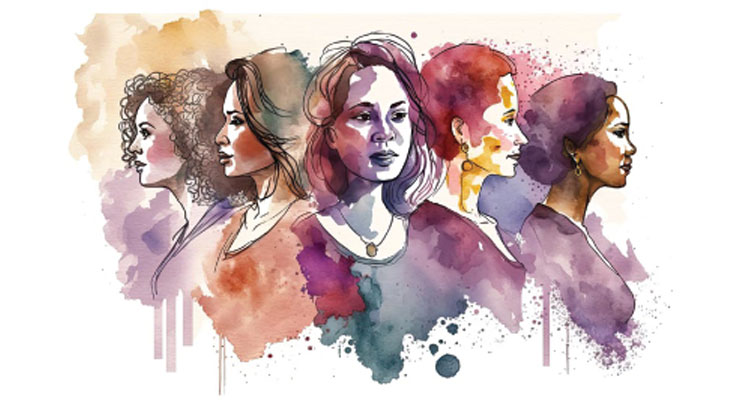
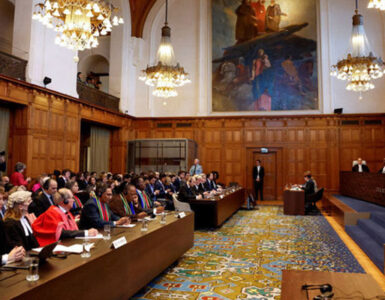
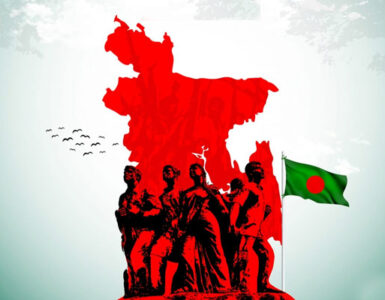
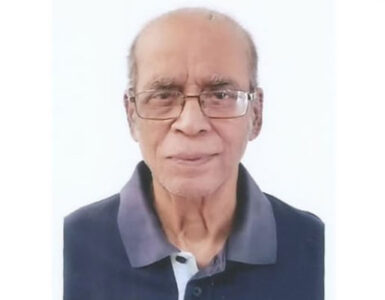
Add comment